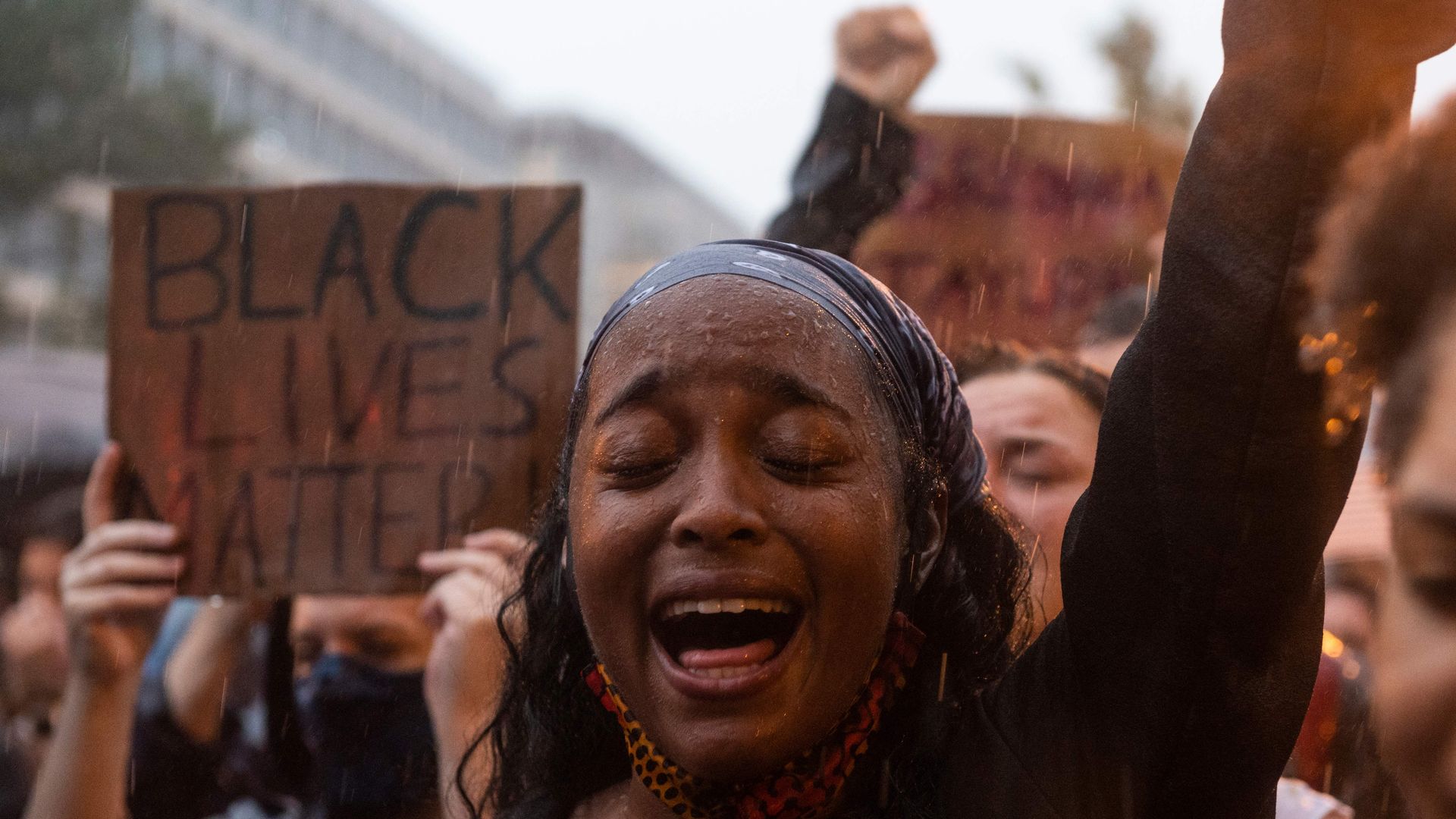Updated Jun 17, 2020 - Politics & Policy
Cities declare racism a public health crisis
Add Axios as your preferred source to
see more of our stories on Google.

Protesters in front of Lafayette Park near the White House in Washington, D.C., this month. Photo: Roberto Schmidt/AFP via Getty Images
